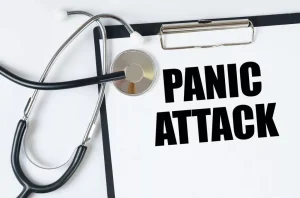
“You can also find referral lists at your local hospitals, with your health insurance, or many other therapists will have referrals to DBT therapists that they keep on hand,” says Shah. Some research suggests that a shortage of available therapists is a major barrier to implementing DBT. “DBT sessions don’t exactly end when the client leaves the office, so the preparation is ongoing,” says Lorandini. Shah adds that you may want to spend a few moments beforehand to collect your thoughts, contemplate your reasons for seeking a therapist, and jot down any concerns you have before your first DBT session. A more recent study, published in December 2014 in the journal Borderline Personality Disorder and Emotion Dysregulation, showed that 77 percent of study participants with BPD no longer met the diagnostic criteria for the condition after one year of DBT treatment.
- Studies show that it’s a good way to learn to manage your intense emotions.
- However, your therapist will set clear boundaries about when you can call them, such as during an agreed-upon range of time during the day.
- In DBT, the patient and therapist work to resolve the apparent contradiction between self-acceptance and change to bring about positive changes in the individual in treatment.
- It is also listed in SAMHSA’s Registry of Evidence-Based Programs and Practices.
Who can benefit from DBT?

Research has shown significant improvements in patients who undergo DBT, including reduced self-harm behaviors, decreased suicidal ideation and behavior, lower hospitalization rates, and improved social functioning. People who may benefit from DBT include those struggling with emotional regulation, self-destructive behaviors, and interpersonal difficulties, and those who have not found success with other therapeutic approaches. If you or a loved one might benefit from DBT, it’s important to talk with a healthcare provider or mental health professional who is trained in the approach.

Stay on top of latest health news from Harvard Medical School.
Dialectical behavior therapy (DBT) is a type of talk therapy for people who experience emotions very intensely. It’s a common therapy for people with borderline personality disorder, https://ecosoberhouse.com/article/what-to-do-if-the-person-you-love-is-an-addict/ but therapists provide it for other mental health conditions as well. Expect a course of treatment that typically consists of weekly group, skill-focused instructional meetings as well as individual therapy sessions.
- “DBT was specially formulated for people who are emotionally sensitive and feel misunderstood,” explains Jeanette Lorandini, LCSW, certified dialectical behavioral therapy professional and founder and director of Suffolk DBT in New York.
- The skills you learn will help you to identify, name, and change your emotions.
- It is important to remember that this should not be used in place of professional help.
- The standard DBT training schedule begins with two weeks of mindfulness training followed by five- to seven-week training modules in distress tolerance, interpersonal effectiveness, and emotion regulation.
- A couple of studies have examined DBT for women with BPD in community settings, such as a community mental health center and a VA hospital.
- Emotion regulation and interpersonal effectiveness skills help you work toward changing your thoughts and behaviors.
- It helps patients recognize and challenge the varieties of distorted thinking that underlie negative feelings and prompt unproductive behavior.
Grounded in mindfulness and behavioral therapy, DBT teaches skills to manage intense emotions.
- Dialectical behavior therapy (DBT) is a comprehensive cognitive behavioral treatment.
- Synthesizing polar opposites can reduce tension and help keep therapy moving forward.
- Talk therapies like dialectical behavior therapy can help you learn coping skills to manage difficult emotions and navigate stressful situations.
- Some people start to feel better and notice a positive difference within a few months of starting DBT.
- The standard DBT treatment package consists of weekly individual therapy sessions (approximately 1 hour), a weekly group skills training session (approximately 1.5–2.5 hours), and a therapist consultation team meeting (approximately 1–2 hours).
In these sessions, you’ll talk with your therapist about whatever you’re working on or trying to manage. Interpersonal effectiveness skills can help you be clear about these things. These skills combine listening skills, social skills, and assertiveness training to help you learn how to change situations while remaining true to your values. However, DBT puts a little more emphasis on managing emotions and interpersonal relationships. This is largely because it was originally developed as a treatment for BPD, which is often marked by dramatic swings in mood and behavior that can make having relationships with others difficult. Research has found that beyond BPD, dialectical behavior therapy has been shown to help reduce suicidal behavior in adults.
Health Conditions

This might be a good thing to have in your back pocket if you often find yourself feeling overwhelmed or just need a bit of extra support. The meetings generally last for 24 weeks, but many DBT programs repeat the skills training so the program lasts a full year. But as difficult as it might sound, it’s possible to manage them with a little help. Some people experience emotional extremes they cannot regulate, often when there is a history of trauma or when they feel threatened or abandoned. Another critical goal of DBT is to address behaviors that pose a life-threatening risk, such as suicidal thoughts, suicide attempts, and self-harm. Plus, you learn to avoid situations that typically trigger strong emotions and pursue events that boost positive emotions.
Your therapist may also review some DBT tools and resources that you might use in future sessions. In a study published in January 2017 dialectical behavioral therapy in Behavior Therapy, which included 37 people with bipolar disorder, those who participated in a 12-week DBT group skills training program reported improved well-being and decreased emotion reactivity. In one study of DBT, as the participants developed more effective skills to manage their emotions, their substance use decreased too. Researchers believe this happened because their emotional coping skills increased and they had less of a need to use substances to numb their emotions.

